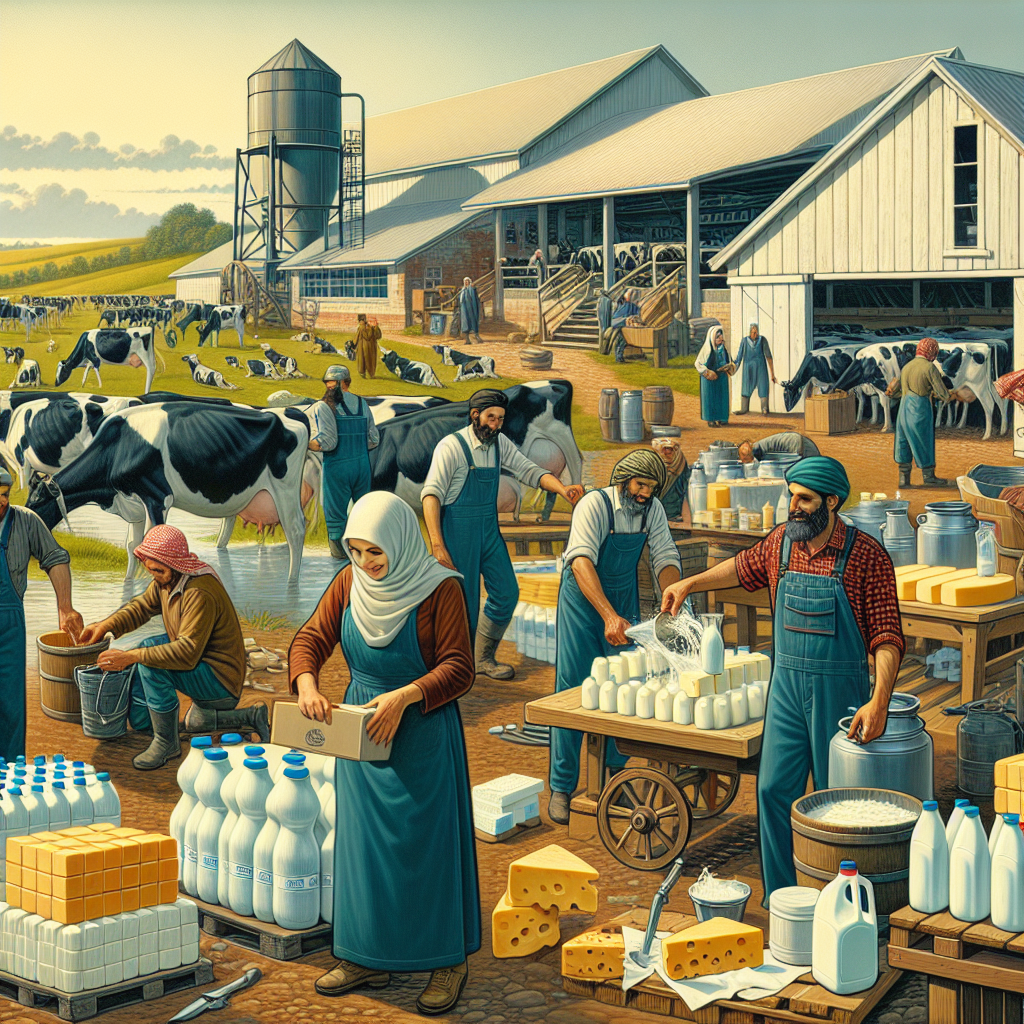East Africa's Dairy Sector Gets Climate-Resilience Boost with US$150M GCF Support
The DaIMA programme is set to reach 2.5 million smallholder dairy farmers directly, and another 15 million people indirectly through wider engagement across dairy value chains.

- Country:
- Italy
In a landmark commitment to sustainable agriculture and climate adaptation, the International Fund for Agricultural Development (IFAD) and the Green Climate Fund (GCF) have signed a major funding agreement for the Dairy Interventions for Mitigation and Adaptation (DaIMA) programme. The US$150 million contribution from GCF forms part of a broader US$358 million initiative aimed at strengthening climate resilience and reducing greenhouse gas (GHG) emissions in the dairy sector across Kenya, Rwanda, Tanzania, and Uganda.
The DaIMA programme is set to reach 2.5 million smallholder dairy farmers directly, and another 15 million people indirectly through wider engagement across dairy value chains. The initiative is not only GCF’s first livestock-focused investment, but also a bold effort to integrate climate-smart solutions at every stage of dairy production—from farm practices to policy and finance.
A Sector at Climate Risk
East Africa’s dairy sector is both a climate victim and contributor. Characterised by high GHG emissions, particularly methane from livestock, it is highly vulnerable to climate change effects including heat stress on animals, more frequent and prolonged droughts, flooding, and erratic rainfall. These factors lead to reduced milk yields, compromised animal health, and lower income for smallholder farmers.
“The impacts of climate change are real and immediate for East Africa’s dairy sector,” said Sara Mbago-Bhunu, IFAD Regional Director for East and Southern Africa. “This programme will offer systemic change, making dairy farming more productive, sustainable, and equitable.”
Building Resilience Through Innovation and Partnerships
DaIMA offers a comprehensive intervention strategy focused on climate adaptation and mitigation. Key interventions include:
-
Veterinary and breeding service improvements to build herd health and resilience.
-
Extension services and farmer education to promote sustainable livestock practices.
-
Access to climate and market information, enabling farmers to better manage risks.
-
Climate-smart feed and pasture management to improve productivity and sequester carbon.
-
Enhanced monitoring, reporting, and verification (MRV) systems for emissions tracking.
The programme has been jointly designed by IFAD and the FAO Investment Centre, which provided critical technical expertise. Design support also came from the Global Methane Hub, the Global Dairy Platform, and a preparation fund provided by GCF.
“This is a milestone for livestock-focused climate finance,” said Catherine Kofmann, GCF Director for the Africa Region. “We’re proud to partner with IFAD to deliver a systemic transformation of East Africa’s dairy sector.”
Major Emissions Reductions and Production Gains
The DaIMA programme sets ambitious targets. Over a 20-year implementation horizon, the programme aims to:
-
Reduce GHG emissions by 2,169,485 tonnes CO₂ equivalent, largely through methane reduction and carbon sequestration in pastures.
-
Increase milk production by 34%, boosting food security and incomes.
-
Enhance the contribution of the dairy sector to national GDPs, reinforcing its central role in East Africa’s rural economies.
Promoting Equity and Social Inclusion
A core element of DaIMA is inclusive development. The programme prioritizes the empowerment of women and youth, who often face systemic barriers in accessing land, finance, and training in the agricultural sector. By offering targeted capacity building and financial tools, DaIMA promotes gender equality, economic empowerment, and social equity.
“This initiative doesn’t just build climate resilience,” said Giovanni Munoz, Service Chief for Eastern and Southern Africa at the FAO Investment Centre. “It uplifts communities and ensures that women and young people have the tools to thrive in a transformed dairy sector.”
Aligning with Global Climate Goals
DaIMA directly supports the implementation of Nationally Determined Contributions (NDCs) under the Paris Agreement for each participating country. The programme is designed to feed into national policy reforms and attract additional climate finance from local and international investors by demonstrating scalable, low-emission agricultural models.
“Through policies and private sector mobilization, DaIMA will help countries deliver on their climate commitments while building a greener, more productive agricultural future,” Munoz added.
Looking Ahead
With implementation set to begin shortly, the DaIMA programme represents a pioneering model of how agriculture—often seen as a climate problem—can become part of the climate solution. Through the integration of science, finance, and inclusivity, the programme offers a blueprint for transforming livestock systems in the Global South.
As climate risks escalate, initiatives like DaIMA illustrate the power of partnerships and long-term vision to protect livelihoods, secure food systems, and reduce environmental impact at scale.










